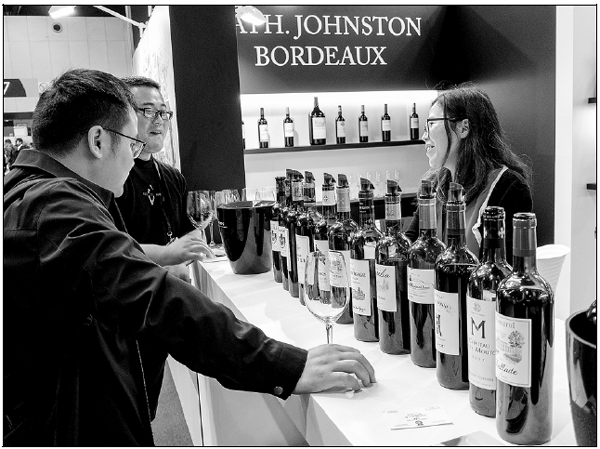Sino-EU agreement protects GI products
Key move to conserve each other's agricultural specialties with a specific geographical origin
After eight years of negotiations, China and the European Union recently released a joint statement on a bilateral agreement to protect mutual geographical indications.
The agreement was inked by China's Ministry of Commerce and the European Commission during French President Emmanuel Macron's visit to Beijing on Nov 6.
Still subject to ratification by their respective domestic procedures, it is expected to come into effect by the end of next year. When it does, the agreement is likely to be one of the most significant trade agreements negotiated between the EU and China in recent years, according to the statement.
It will be another step in the global recognition of geographical indications, allowing the two sides to preserve their traditional ways of producing high-quality products, conserving their food heritage and contributing to rural economies.
"It is a win for both parties, strengthening our trading relationship, benefitting our agricultural and food sectors, and consumers on both sides," said Phil Hogan, commissioner of agriculture and rural development at the European Commission.
Consumers are willing to pay a higher price for GI products trusting the origin and authenticity of these products, he said, which "further rewards farmers".
Gao Feng, spokesman at the Ministry of Commerce, said the agreement is of milestone significance to deepening the China-EU economic and trade cooperation.
The agreement will provide high-level protection for GIs from both sides, effectively prevent fake GI products and enable Chinese and European consumers to access premium genuine goods, Gao said.
GI is a sign used on products that have a specific geographical origin and possess qualities or a reputation that are due to that origin.
According to the agreement, there are 100 GIs from each side to be protected. The EU list of GIs to be protected in China includes Cava and Bordeaux wines from Spain and France respectively, Feta cheese from Greece and Irish whiskey.
Among the Chinese GIs to be protected in Europe are Pixian bean paste from Chengdu, Sichuan province; Anji white tea from Huzhou, Zhejiang province; and Panjin rice from an identically named city in Liaoning province.
Four years after the agreement takes effect, an additional 175 GI products will be added to their respective lists.
Zhang Ying, president of Limagrain China, a France-headquartered international agricultural cooperative group that specializes in field seeds, vegetable seeds and cereal products, told Xinhua News Agency that the agreement demonstrates the country's further resolution to protect intellectual property.
"That will help us to gain faster development in the Chinese market.," Zhang said. The company has had a presence in China for more than 20 years.
"China's increasingly open market and improved IP protection give us much confidence," Zhang added.
In 2007, China and the EU launched a pilot project to formally lodge applications for the protection of 10 agricultural GIs in the other. In 2016, the former General Administration of Quality Supervision, Inspection and Quarantine, which has since been restructured as part of the State Administration for Market Regulation, approved Bordeaux wines produced in 45 regions to be protected as GI products in China.
China is the second-largest destination for exports of EU agricultural products. Official statistics show that from September 2018 to August 2019, EU members exported agricultural products worth 12.8 billion euros ($14.16 billion) to China. Of the value, protected GI products accounted for 9 percent, including wines and spirits.
Geng Shuang, spokesman at the Ministry of Foreign Affairs, said, "It is the first comprehensive and high-level bilateral agreement on GI signed by China, which reflects that China attaches great importance to the bilateral trade relations."
"Signing the agreement also fully demonstrates the firm resolution of the Chinese government to deepen reform, expand opening-up and increase IP protection," Geng said.
liangkaiyan@chinadaily.com.cn
|
An array of Bordeaux wines from France on display at a global trade expo in Shanghai in October. Provided to China Daily |
(China Daily 11/21/2019 page17)















